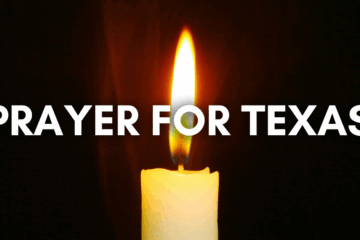Fr. Andreas Agathokleous
Every person’s history comprises various phases, some pleasant, others not so. When we reflect on them, it may be that we’d rather some of them hadn’t happened and that, if we were able, we’d alter them.
And yet they all contribute to our spiritual development and maturity. They’ve all given us something without which we wouldn’t be who we are and wouldn’t have our own story.
It’s been said that our life resembles a piece of embroidery. Where the confused tangle of threads below prepare the beautiful pattern above. In other words, we can’t at this moment explain various events which look more like ‘a confused tangle of threads’, being without reason or cohesion. In the end, though, it’ll be clear that nothing’s fortuitous and that there’s a point to everything.
It’s true that we’ve not been cast into a boundless universe, alone and without assistance. We have a God and Father who cares about us, who loves us and looks after us, not directing our life but accompanying us on the journey. This experience becomes personal to the point that we experience his presence, and see his love in his unobtrusive interventions.
A God who condescended to become human can’t be understood rationally.
A person who is both God and human and is taken to his death on the cross without offering any resistance, becomes the familiar acquaintance of the humble, the insignificant and the downtrodden.
What can you say about his silence in the face of our cries? How can you explain his scandalous benefactions towards some and his apparent indifference towards others? ‘Who has known the mind of God?’. Who will stand as his lawyer?
So, when we look at the erstwhile events in our life, we can confirm the moments of his living presence, as well as the harsh times of his silence. We can distinguish the beauty of the visitation of God’s grace, as well as the misery of its absence.
The question might be asked? What’s the point of turning back to our past? What benefit is there in raking it up, particularly when it painfully defined our later life? Exactly. As the past, it’s dead and we experience it only as a memory. But it can still affect us negatively if we turn to it with a ‘Why?’, which stifles our freedom and contentment. Just as it can affect us positively, if we leave it permanently in our wake and begin a new life, with a new outlook. In other words, what the Church calls repentance.
The past then, with its pros and cons, becomes the story of each of us, becomes our own. And it’s not all a plus or a minus. With the pleasant, and the unpleasant- which one day will also become pleasant- since these events will have given us experience, wisdom, discernment, and, in particular, repentance as a dynamic way forwards, towards the eternal day when everything shall be made new and beauteous in the light of Christ.
Source: pemptousia.com




0 Comments